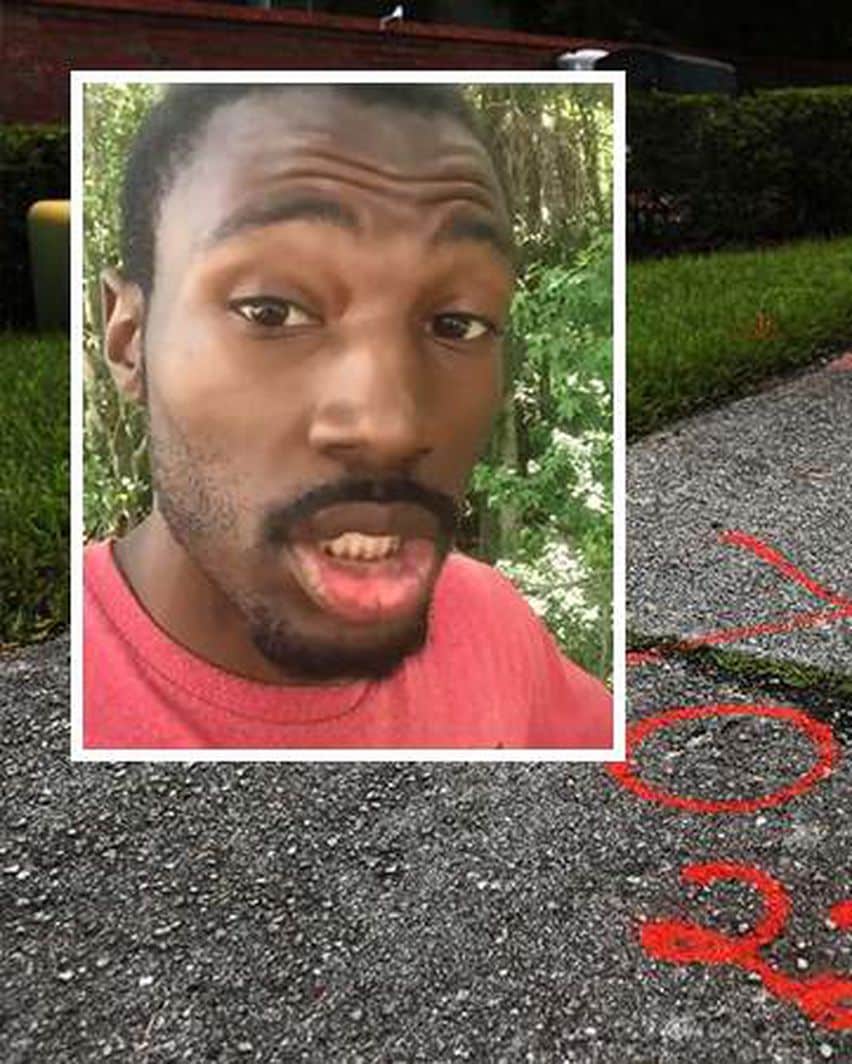Quick Guide For Law Enforcement Officers
Sometimes its hard to know if you should Baker Act someone. You want to be a responsible officer and do the right thing to protect individuals and those nearby, but youre not sure whether to take a person to jail or to initiate the Baker Act and take the person to a receiving facility.
This guide has been developed by the Mental Health Coalition of Pinellas County to help you make that decision in the field. We have outlined some common behaviors of those in crisis and summarized things to be on the lookout for.
Key Points
Behaviors to Look For
Individuals with mental illness who may need further evaluation typically exhibit a combination of the following behaviors, characteristics, or indicators of their illness:
NOTE: If you have any doubts, dont forget to contact your CIT Officers or one of the receiving facilities.
How Is Someone Baker Acted
There are three ways by which a person can be Baker Acted: through a circuit court, a law enforcement officer, and certain health professionals. Typically they are picked up by a law enforcement officer. Here at Roderman and Johnston Law we are committed to helping getting your loved one the care that they need. Call us today if you need any help .
Who Can Baker Act Someone
The Baker Act is an existing law that provides for temporary institutionalization of individuals who meet certain criteria. It can only be used by specific authorized persons, including judges, mental health professionals, law enforcement personnel, and doctors.
What is Baker Act in New York?
Baker Act of New York State. A Baker Act is a means of providing individuals with emergency services and temporary detention for mental health evaluation and treatment when required, either on a voluntary or an involuntary basis.
Don’t Miss: John Deere Baker City Oregon
Basics Of The Florida Baker Act
The Florida Mental Health Act, more commonly known as the Baker Act, was passed to allow for the creation of mental health programs designed to reduce the occurrence, severity, duration, and disabling aspects of mental, emotional, and behavioral disorders. Section 394.453, Florida Statutes.
The Baker Act contains a variety of provisions ranging from screening to appointment of legal guardians. However, the Baker Act is most commonly known for the involuntary evaluation and confinement provisions. Being involuntarily confined for a mental health exam in Florida is commonly called being Baker Acted.
The rights of a Baker Act patient are spelled out in Section 394.459, Florida Statutes. They include receiving a physical exam within 24 hours of arrival at the facility , Fla. Stats.) requesting a writ of habeas corpus in accordance with Chapter 79, Florida Statutes . Fla. Stats.).
How Does The Baker Act Florida Work

If a person in position to initiate the Baker Act deems it appropriate for the person in question, then that person will be involuntarily institutionalized for no more than 72 hours. During that time, an examination will be performed to determine if the person is suffering from a debilitating mental illness. From there, the following occurs:
- If a person is determined to be unable to make knowing mental health decisions for themselves, the hospital will petition for treatment of the individual
- A mandatory exam will be performed by a clinical psychological or physician to determine how severe the patients mental illness is and what level of care is most appropriate for them
- If the mandatory exam was not performed by a clinical psychologist, a second one must be conducted to support/negate the physicians findings
If a patient meets all criteria to be Baker Acted, then they will be involuntarily placed into inpatient or outpatient programming for six months following their involuntary institutionalization. If a patient does not meet the criteria needed to be Baker Acted at any point in this process, they will be fully discharged.
You May Like: Honey Baked Ham Vestavia Hills Al
What Happens After The Baker Act Has Expired
Within 72 hours, the person must be released, either for outpatient treatment or on their own recognizance, unless:
- They are charged with a crime, OR
- They give express and informed consent to voluntarily be held or admitted.A physician must certify that the individual is able to make well-reasoned, willful and knowing decisions about their mental health and medical conditions, OR
- The facility administrator files a petition for involuntary placement with the circuit court
Note that in the latter example, the initial three-day holding period may be longer if a weekend or a holiday falls within that period. In that case, the petition must be filed on the next business day.
If the facility administrator has filed a petition for involuntary placement, a hearing will be held within five business days. The only exception is if the subject of the Baker Act requests and is granted a continuance from the court.
The individual has a right to representation. Unless a private attorney is hired, a public defender will be appointed to represent them. An independent expert examination can be provided by the court on behalf of the person.
The state attorney represents the state. However, one of the facility professionals who filed the petition must be present as a witness.
The court first hears testimony as to whether the individual is competent to elect voluntary treatment. If they are not, a guardian advocate is appointed.
What Is The Difference Between The Baker Act And Marchman Act
The Baker Act is a Florida law that allows individuals who are experiencing crippling mental illness to be involuntarily committedfor examination and treatment. The Marchman Act is also a Florida law but is invoked for individuals who are deeply impaired by a substance use disorder.
Each act lasts for different periods of time. For example, when someone is Baker Acted, he or she can only be involuntarily held for 72 hours for an examination. After that, any and all recommended treatment is voluntary and not required by court order. The Marchman Act, however, does require individuals to remain in an involuntary hold for up to five days for examinations and detox. Following that, a judge can order the individual to remain in treatment for up to 60 days, with the potential to follow up that order with another 90 days if deemed necessary.
Because both acts focus on different concerns, the criteria that need to be met in order to invoke either one varies from one another. An example of this would be that a person who needs to be Baker Acted must be in danger of suffering significant personal harm if not intervened on while someone receiving the Marchman Act must have threatened to inflict harm on him/herself or others due to his or her substance abuse.
Don’t Miss: How To Bake Pizza In Oven Without Pizza Stone
What Happens After 72 Hours Of Baker Act
by CCHR Florida | Apr 15, 2020
A person may not be held for longer than 72 hours and when the 72 hours is up the person must be released unless charged with a crime, or the person must decide to stay on a voluntary basis or the facility must file a petition for involuntary commitment.
109 N. Fort Harrison Ave.Clearwater, Florida 33755Tel: 1-800-782-2878
CCHR Florida
The Citizens Commission on Human Rights of Florida is a non-profit watchdog organization that investigates and exposes psychiatric abuse and educates the public about their rights in the field of mental health.
CCHR Florida provides only facts and does not provide medical or legal advice.
Our office recommends that an individual seek a competent medical examination by a non-psychiatric medical professional.
Follow Us
Two Critical Choices Right Now
After your loved one has been Baker Actedyou have two decisions:
Afterall, you want your loved one to get the help they need, whether that means enrolling them in an outpatient or inpatient program, finding them a therapist, or ensuring they take the proper medication. We believe this is a private family matter and that you should be part of the decision making process for your loved one in their time of need.
Our Attorneys will take immediate legal action as soon as you call us. We at Roderman and Johnston Law will let the facility know that we are representing your loved one, and then we will take all the necessary steps to protect your family member and begin by filing a petition for a hearing
Don’t Miss: Shake And Bake Pork Recipe
Involuntary Commitment By State
There are currently 37 out of the 50 states in America that have involuntary commitment laws put in place. The specifics of these laws vary from state to state, however, are all designed to help those who cannot help themselves.
The states that have involuntary commitment laws for substance use disorder and alcoholism are:
The states that have involuntary commitment laws for alcoholism only are:
Vermont is the one singular state in America that has involuntary commitment laws for substance use disorder only.
What Happens When You Baker Act Someone
What is it? | How it works | The Process | Voluntary Admission | What happens afterward?
Mental health issues are often difficult for society to manage, especially in situations where troubled individuals refuse to seek the help they might need. This can be particularly problematic in cases where someone with a possible mental illness is believed to be a potential threat to himself or others. Some jurisdictions have attempted to cope with those concerns through legislation that allows involuntary institutionalization for mental health examination. The Florida Mental Health Act of 1971 otherwise known as the Baker Act provides certain persons with the power to temporarily send potentially troubled individuals to mental health institutions.
But what happens when you Baker Act someone?
Don’t Miss: How To Become A Baker Or Pastry Chef
What Is Floridas Baker Act
The Florida Mental Health Act of 1971, more colloquially known as the Baker Act, is the Florida law that allows police, mental health workers, doctors, and judges to involuntarily commit someone to a psychiatric facility to be examined when a person is in danger of harming others or harming themselves. Adults can be committed for up to 3 days, half a day for kids. The idea is the person is to be examined and evaluated medically and treated when appropriate.
Draconian, yes. So the Baker Act was written and among other provisions, mandated court-appointed attorneys to represent each person for whom involuntary placement was sought and provided for independent reviews every six months of all involuntary placements. Placements in hospitals Baker Act receiving facilities. And provides a patients bill of rights, protecting persons rights to communicate with whomever they wished, to receive and send unopened mail, to use their own possessions, and to vote, among many other rights. The law also prohibited the placement of persons with mental illnesses in jails, unless they had committed criminal acts.
Its An Alternative To Jail Or Prison

Something else that has a strong correlation with drug use? Getting in trouble with the law. Approximately 20% of all incarcerated Americans are there for a drug offense. Unfortunately, as many prisoner-advocates have pointed out, most jails and prisons are poorly equipped to treat substance abuse. Of the more than 3,200 jails in the country, only 23 provide medically-assisted treatments such as Suboxone or methadone. The Baker Act can circumvent criminal processing and have them go to a facility to receive help for drug use, rather than immediately being imprisoned.
Read Also: Baker University School Of Professional And Graduate Studies
Were Always Here To Help
Assessment and Referral Specialist are available 24 hours a day, 7 days a week to assist you or your loved one. We cannot offer diagnosis, counseling, or recommendations online. To schedule a no-cost assessment or for more information, please call or send us a message. If you are currently experiencing an emergency, please dial 911 or go to the nearest emergency room.
What Is The Florida Baker Act
Many people ask what is the Baker Act? The Baker Act is a law in the state of Florida that allows family members and mental health professionals to provide emergency mental health services and to temporarily detain someone who is impaired and is determined to be a threat to themselves or others. People who require the Baker Act typically cannot commit to safety and need help immediately. Examples of conditions that might warrant the Baker Act are suicidal or homicidal thoughts and urges, especially when there is a clear plan or intent to cause harm, severe and debilitating psychiatric symptoms that prevent an individual from being able to care for him or herself, a sudden and severe worsening of psychotic symptoms that impair normal functioning, any kind of delusion or hallucination that might cause extreme agitation or violence in an individual.
The Baker Act was put into law in 1972 in the city of Miami by a woman named Maxine Baker who sponsored the bill.
Also Check: Baker And Olive Peach Balsamic
Can You Sue For Being Wrongfully Baker Acted
If you or a loved one are involuntarily committed under the Baker Act, it is wise to begin seeking legal counsel. In some circumstances, the facility may petition the court to extend the involuntary commitment of the patient. Those who were improperly committed under the Baker Act might have grounds to sue for damages.
A Court Hearing Is Scheduled
An involuntary placement hearing must be scheduled within five days. A court-appointed public defender is assigned to the individual unless they have other representation. Testimony and evidence are provided to determine if the person is competent to consent to treatment. If not, then a guardian advocate is appointed to the individual. If they are found incompetent, an order remanding the individual to a treatment center for up to six months is possible.
Don’t Miss: Carlo’s Bake Shop Locations
How To Get A Client Released
The facility isnt the only entity with the ability to get the court system involved. A patient or the patients guardian advocate can file a petition for a writ of habeas corpus requesting a hearing regarding release from involuntary confinement. Forms for this are usually made available to patients at the facility. Otherwise, an attorney can prepare and file a petition for a writ of habeas corpus as needed.
Before filing a petition, legal counsel may be able to get involved during the 72-hour window and obtain a patients release prior to the facility petitioning the court system for permission to extend confinement. As stated earlier, the prevailing test is usually whether the person being held is a danger to himself/herself or to others.
In our experience, the mere presence of an attorney along with family members lets the facility know that there is a support system in place that will address the needs of the patient. This means that a familys plans to address the facilitys concerns through voluntary treatment or the active participation of family can be very effective.
The Baker Act specifically states that confinement is not appropriate when any apparent harm may be avoided through the help of willing family members or friends . . . . Section 394.463, Florida Statutes. Your clients should know that hiring an attorney is one of the best ways to indicate to the facility that they are serious about getting released.
Can You Get Fired For Being Suicidal
A call off expressing suicidal thoughts is likely not something that should warrant an automatic termination. An employer would want to remain objective and recognize the situation as an accommodation request. Jane is indicating what is going on and that she needs leave time to attend medical treatment.
Recommended Reading: Honey Baked Ham North Myrtle Beach
What Do I Do After 911 Is Called
Recommended Reading: Baked Stuffed Peppers With Ground Turkey
The Court Orders The Evaluation

Once a person petitions the court providing information, the court issues an ex parte order. That means an involuntary evaluation is required. A judge must grant this order based on the information available. Then, a law enforcement officer takes the person into custody and transports them to a location for help.
Recommended Reading: How To Sell Baked Goods On Instagram